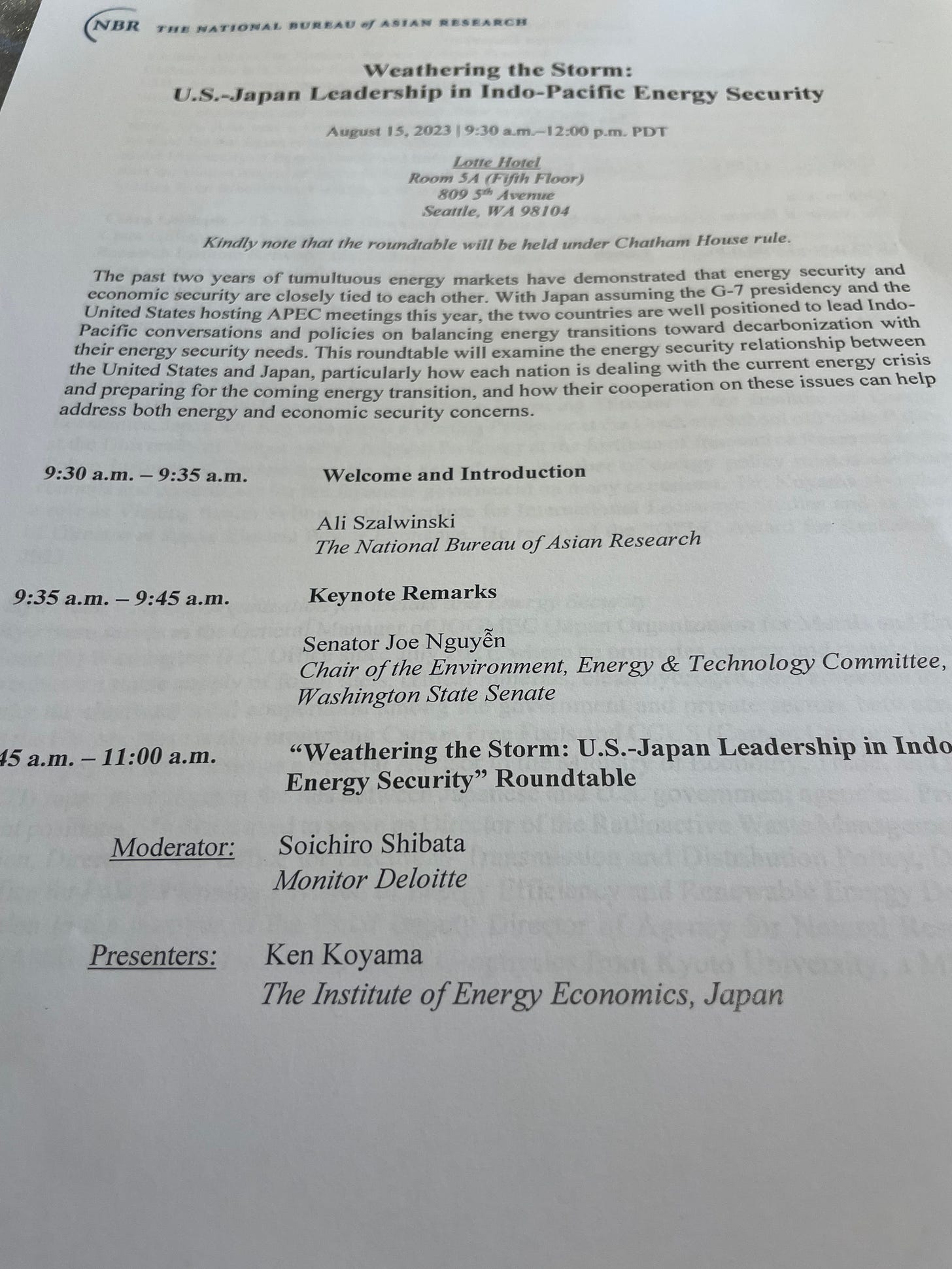I promised this substack would include tribulations and thanks among its topics. We all know I do the tribulations part well.
Today, 15 August focuses on how we can accomplish things when we focus on the future.
On 15 August 1945 the Emperor unconditionally surrendered in Tokyo ending the horror of World War II was across the world (Germany, of course, surrendered three months earlier). Many things in so many places required decades’ rebuilding. It had been horrible but the war itself closed.
One step follows another with few things done all at one if those things are meaningful.
But we sit 78 years later with Japan and the United States linked closely with over seven decades’ sharing concerns and approaches. A Mutual Defense Treaty between our two nations went into effect seventy years ago and is stronger than ever. We do not agree on everything; no two sovereign nations ever do but we truly see a strong relationship unthinkable on 15 August 1945 as my father was one of hundreds of thousands of U.S. Army troops preparing to invade the Home Islands.
I hesitate to laud ‘shared values’ as overusing the phrase devalues unique strengths and weaknesses of any two societies; of course there are many values we share but it is unrealistic to say that includes everything. We are, however, tightly linked on the issues most concerning in 2023: menacing behaviours in Asia, enhancing free trade, accountable and transparent governance, and environmental plagues hitting both our nations and the globe.
Additionally, President Biden is proving remarkably able, following considerable personal effort, in drawing the Japanese Prime Minister, Fumio KIshida, and the Korean President, to collaborate for a different security calculation from the past. Though occasional painful missteps, recriminations and rewriting of history still afflict both countries, the previously unthinkable prospect of greater cooperation between Seoul and Tokyo is being supplanted by focuses addressing the future rather than rehashing a terrible past that cannot be rewritten. The trilateral cooperation these leaders are making, if sustained against the still substantial odds, could make a tremendous long-term balance in East Asia.
Just this morning, I attended a conference, hosted by the National Bureau of Asian Research, where Japanese speakers made this point after I began this column this morning. Things are not solved but they are most definitely looking at solving future problems far more than the traditional rehashing of past grievances.
Change requires sustainable commitments and patience. It will be interesting and vital for all parties to persist in this transformation if it is to occur. The current panoply of problems around the globe are a pretty powerful incentive, however.FIN




